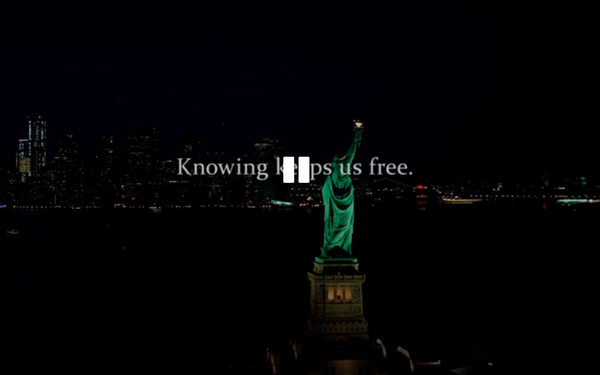Commentary
Knowing Isn't Free
- by Joe Mandese @mp_joemandese, February 4, 2019

I miss the days when I could just watch the Super Bowl, react to the ads and discuss them the next day around the water cooler instead of the real-time proboscopic breakdown analysis that the Big Ad Game has become.
As I write this, my inbox already is getting flooded with numerous polls, “scientific” studies, and real-time metrics analysis purported to show what the best Super Bowl spots actually were. Personally, I found most of them underwhelming -- most likely because most have already been previewed in the weeks leading up to Super Bowl Sunday -- but also because they just weren’t that funny, captivating, and definitely not thought-provoking.
Aside from a couple of mashups -- Bud Lite/”Game of Thrones” and T-Mobile/Taco Bell -- I thought the most creative spot and emotionally engaging spot was CBS’ animated eyes promo featuring stylized versions illustrating audio clips from classic CBS series.
The only spot genuinely worth discussing -- The Washington Post’s “Knowing Helps Us Decide -- has already sparked a backlash, mainly from the paper’s own staffer’s grousing about the high cost of running a Super Bowl ad -- but if you ask me, it was money worth spent, because it reminds us all that “knowing” isn’t free.There are are real costs associated with the kind of journalism the Post’s ad celebrates, and the economic ones are just a means to the end of what it takes to know.




Bezos can afford the ad by paying its asking price. As for journalists, there is an oversupply and everyone knows what fragmented demand does to the price. News is a commodity and facts can be framed according to a predetermined template. If the Post vaporized tomorrow, someone would still report more than one side to current events.
@Douglas Ferguson: Saying news is a commodity is like saying knowledge is a commodity. All knowledge is not equal.
The Washington Post -- and the news organizations it celebrates in its ad -- distinguish themselves with exceptional journalism that uncovers or otherwise advances what we know.
If they went away tomorrow, you'd still have knowledge, but I believe you'd have less of the kind that keeps us free.
Most Americans (especially those who think the media is conspiring against that Idiot in the White House, who in fact is his own worst enemy) have no first-hand knowledge of how hard the upper echelons of the press work to get it right. How much discussion goes into if stories are balanced and fair and as close to the truth as is humanly possible to get. Their flip comments that the country would be better off without them, are nieve and dangerous. Go live in Russia or China and perhaps you will appreciate what a free press really means.
Yes, I also was pleasantly surprised by the Washington Post ad, given the many travails that journalists face, not only from oppressive governments, organized crime and war-zone hostilities, but also from disruptive tech giants like Facebook, Google and Amazon that are radically changing the information economy. Of course, Amazon founder Jeff Bezos also owns the Post.